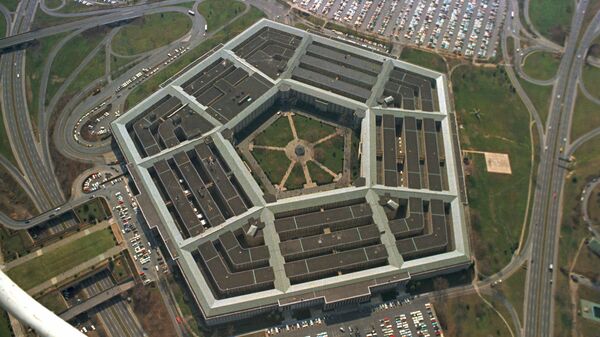The May 24-issued RFI post states that the agency is "conducting market research in support of a possible contract to improve international partners' capabilities to prevent civilian casualties and mitigate other harm to civilians that may arise from partner security operations."
It further notes that the Washington Headquarters Services, Acquisition Directorate (WHS/AD) is on the hunt for "potential sources," and that the RFI does not indicate that an award will be granted to sources.
Industry feedback should address a variety of concerns such as the creation of military technology that will be able to distinguish between military objectives and civilians and establish standards that will help to better collect and analyze civilian casualty data, among other goals.
The notice specifies that Pentagon officials are interested in "unclassified software and other tools that assist with targeting and collateral damage estimates for military operations, including technology capabilities that would assist in the effective use of air-launched weapons (PGMs or unguided bombs) and/or analyze potential collateral damage based on a specific weapon employment scenario."
Interestingly enough, the RFI makes no mention that the technology will be tapped by the US to reduce its own count of civilian casualties, stressing that the new methods are intended for "international partners."
Leah Bolger, a retired US Navy commander and now president of the board of World Beyond War, told Sputnik that the RFI notice is "truly appalling," noting that it and articles written about the request, "really infers that it is our military ‘partners' who are killing civilians, and if we could just find the right unclassified technology to give them, the problem would be solved and they would avoid civilian casualties."
"The premise behind this search for the right technology affirms the notion that killing civilians is a bad thing. One way to get around this is to underestimate the number of deaths, or make no attempt at all to find out who has been killed. The US does not have a good track record in this department," she said.
Earlier this year, the Pentagon's 2018 report to Congress on civilian casualties indicated that only 42 civilians were killed in Iraq and Syria during military operations against Daesh forces. Another 76 civilians were killed in Afghanistan as US forces struck back against Taliban militants. In Yemen, the report noted that no civilians were killed during airstrikes.
However, these numbers have been largely disputed by various organizations, including the United Nations, which found that US strikes in Afghanistan killed more than 500 civilians in 2018. Airwars, a London-based nonprofit that tracks civilian deaths in conflict zones, reported that US actions against Daesh in Iraq and Syria killed between 820 and 1,712 civilians.
These discrepancies may soon be hidden, however, as US President Donald Trump in March 2019 issued an executive order formally ending a requirement of US officials to publicly report the number of civilians killed in drone strikes or other attacks.
"It is laughable to me, that we want to develop an unclassified program that would calculate the ‘best way to use guided missiles to avoid civilian casualties' that we could give to an ally," Bolger told Sputnik.
"The only time that the US is concerned about civilian deaths is when they adversely impact their operations, for example the reduced willingness of locals to provide intelligence."
According to the listing, questions regarding the RFI are due by 1 p.m. local time on June 6, and interested individuals or businesses can submit their capability statements no later than 1 p.m. on June 14. In-person briefings are expected to be held on June 18 and 19 for a whopping 45 minutes.



